South Africa
Civil space spending in Africa (USD), 2022-2024
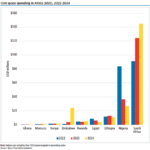
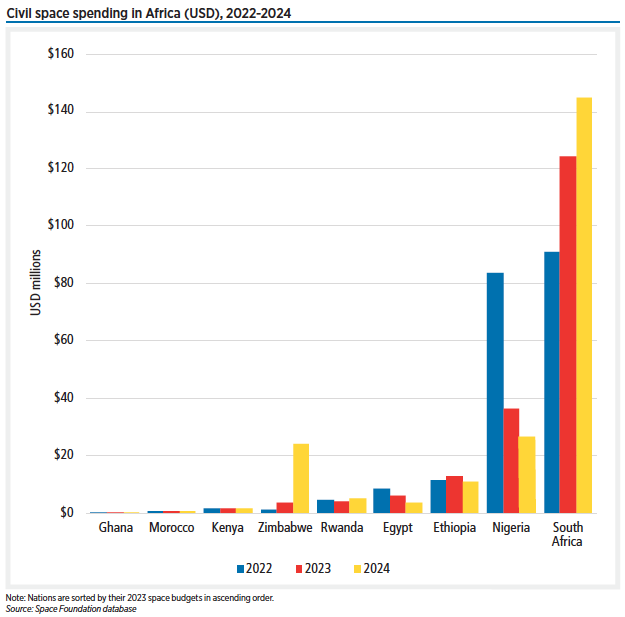
Nine African nations have preliminary budget data available for 2024. As in 2023, seven nations in the region maintained or increased spending, while Egypt and Ethiopia decreased space budgets.
Liftoff: Q1 2024 Highlights

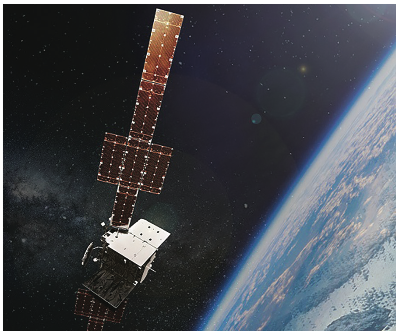
The space industry is advancing faster than ever before with continual progress in the government, military and private sectors. Here are noteworthy business highlights from this quarter.
South African Space Budget, 2011-2020
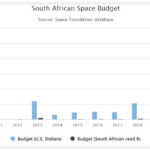
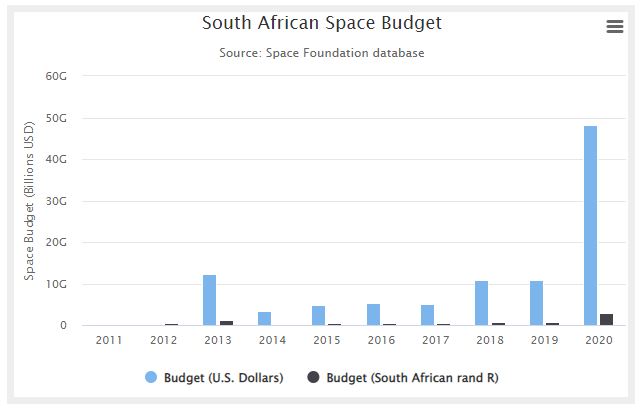 This interactive chart shows changes made in the accompanying table. Use the tools just above the table for sorting, advanced filtering, and other options, these actions will reflect on the…
This interactive chart shows changes made in the accompanying table. Use the tools just above the table for sorting, advanced filtering, and other options, these actions will reflect on the… Civil Space Spending in Africa (USD), 2021
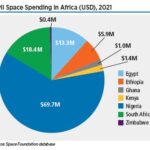
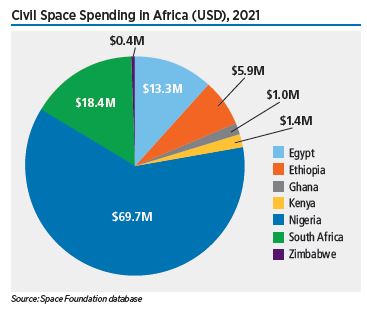
Although the continent’s total space spending is a small fraction of global spending, Africa is quickly becoming a space powerhouse. The African Union’s Agenda 2063 includes the Africa Outer Space Strategy as one of 15 flagship projects “to [accelerate] Africa’s economic growth and development.”
2021 TSR – Space Symposium Special Edition: Global Space Economy Climbs Despite Pandemic, Disrupted Government Spending
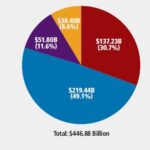
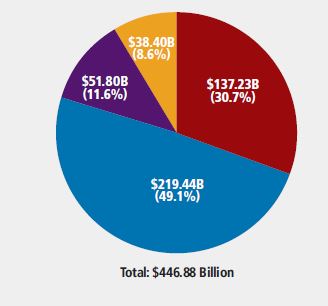
The global space economy reached a new high of nearly $447 billion in 2020, an increase of 4.4% from a revised 2019 figure of $428 billion. The 2020 figure is 50% greater than a decade ago, and 176% greater than . . .
2020 Global Space Economy Climbs Despite Turbulent Year, Disrupted Government Spending

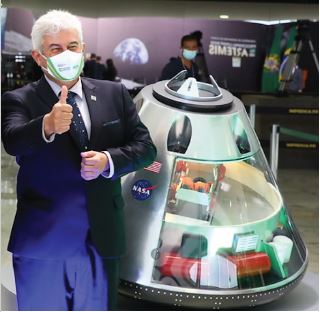
International successes in space, such as the Hope, Perseverance, and the Zhurong missions to Mars, don’t happen without years of advance government spending. In 2020, as nations struggled to overcome a global pandemic, space spending varied widely across countries and agencies.
2019 TSRQ2 – Economy: Non-U.S. Government Space Investment


Growth in the government investment sector of the space economy outpaced commercial sectors as the U.S. and non-U.S. government shares of the global space economy between 2017 and 2018. . .
2019 TSRQ2 – Workforce: Domestic and International Space Industry Employment
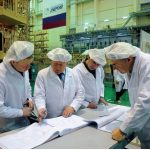
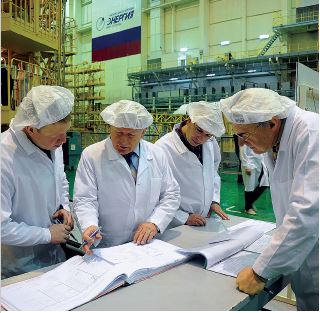
The global space industry employs hundreds of thousands of highly skilled individuals to design, produce, and operate cutting-edge technology. This dynamic workforce contributes to local economies, with clusters of innovative companies and service . . .
Education

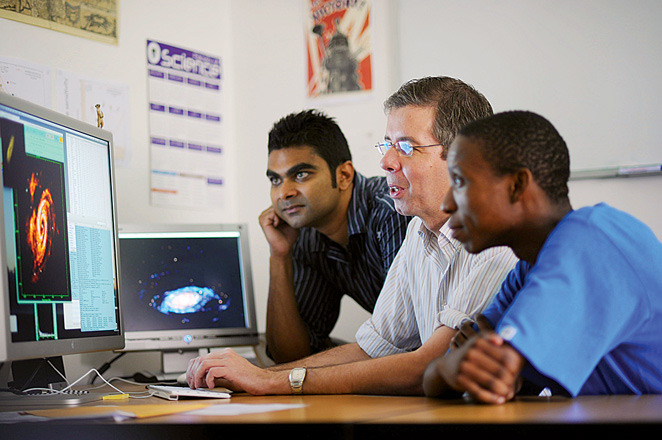
In addition to adeptly managing the existing workforce, the health of the industry relies on a steady supply of highly educated individuals, particularly those earning university degrees in science, technology, engineering, and mathematics (STEM) fields.
2014 – Additional Country Space Budgets
Around the globe, many smaller nations—whether in terms of economy or population size—are investing in space projects or programs. The exhibit below shows the most recent available annual budget for civil space activities in a number of selected space states.